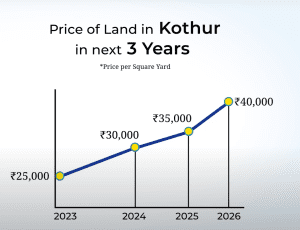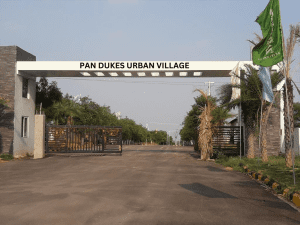What is the Right Age to Purchase a Home?
The right age to purchase a home is a highly subjective question that depends on a variety of factors such as income, lifestyle and financial goals. For some, the right age may be when they are still in their twenties while others may wait until they are in their fifties. However, regardless of the age, purchasing a home is an important decision that requires careful consideration and financial planning. Income is a major factor to consider when deciding when to purchase a home. Generally, it is recommended to have a steady source of income that can cover the mortgage payments and other costs associated with homeownership. This may mean waiting until one has a job that pays enough to cover the costs. In addition, having savings and investments can help to reduce the risk of financial hardship should the mortgage payments become too difficult to pay.
Lifestyle is another factor to consider when deciding when to purchase a home. Homeownership requires a great deal of responsibility and commitment. It may not be the right choice for those who are looking for a more transient lifestyle. Those who plan on traveling or relocating often may want to wait until they are more settled before taking on the responsibility of homeownership.
The Age of property Buyers over the Post four Decades
In the late 1990’s
The 1990s saw an increase in homebuyers, particularly among young people. Home ownership was increasingly seen as a way to build wealth and a symbol of success, as well as providing a stable and secure home. During this decade, mortgage rates were at historic lows, making homeownership more affordable. The economy was also booming, leading to more people having money to invest in real estate. Additionally, the government, banks, and other lenders were providing incentives for first-time homebuyers, such as tax credits and lower down payments. First-time homebuyers were the primary demographic of people buying homes in the 1990s. Many were young adults looking to start a family, as well as those looking to invest in real estate for future financial security. These buyers were attracted to the low mortgage rates, the incentives offered by banks and lenders, and the opportunity to build wealth.The 1990s also saw an increase in immigrants and minorities buying homes. These individuals were drawn to the lower cost of living in certain areas and the potential to build wealth. Additionally, the government was offering incentives to encourage homeownership among these communities, such as grants and loans.
Finally, older adults were also buying homes in the 1990s.
2000’s
Real estate has been a popular investment option in India for a long time, and the early 2000s saw a surge in the number of people purchasing homes. This trend was driven by a combination of factors, including an overall increase in disposable income, a growing preference for urban living, and the rise of the Indian middle class. In the early 2000s, the median age of homebuyers in India was around 35. This was an interesting demographic – it included younger buyers who were just starting to invest in real estate, as well as more established buyers who were looking to upgrade or purchase a second home.
The majority of homebuyers in the early 2000s were in their 30s and early 40s. These buyers tended to purchase smaller homes, typically in the range of 1,500-2,000 square feet. They typically had high disposable incomes and the ability to make a down payment of at least 20 percent of the purchase price. The late 2000s saw an increase in the number of homebuyers in their late 40s and 50s. This demographic was increasingly looking to purchase larger homes, typically in the range of 2,500-3,500 square feet. The survey also showed that many of these young homebuyers are taking advantage of the various financial options available to them, such as home loans and property investment schemes. These schemes have given young people the opportunity to purchase their first home at an earlier age than ever before.
In addition to the availability of financial options, the Indian government has also taken steps to make home ownership more accessible to the younger generation. In 2017, the government
2010
In India, the age at which people are purchasing homes is increasing. According to a report released by the National Housing Bank, the average age of homebuyers in India in 2010 was 36. This is up from 33 in 2008. The study also found that the percentage of people aged 25-35 buying homes has decreased from 65% in 2008 to 55% in 2010. Meanwhile, the proportion of homebuyers aged 35-45 has increased from 30% to 40%. This indicates that people in India are buying homes later in life than they used to.
The report suggests that this trend is due to a number of factors, including rising property prices, increasing cost of living, and changing lifestyles. As such, people are opting to delay home ownership until they are more financially secure. In addition to the age of homebuyers, the study also looked at the source of funds used to purchase homes. It found that the majority of homebuyers (72%) relied on their own savings to finance their purchase. This is an increase from 2008, when only 63% of homebuyers used their own funds.
The report also found that the number of homebuyers using bank loans to finance their purchase has dropped from 33%
So, what is the right age to buy a home
25 – 30 years
Buying a home is a big decision and there is no one-size-fits-all answer to the question of whether 25 – 30 is the right age to buy a home. The age at which you decide to buy a home will depend on a variety of factors, such as your financial situation, lifestyle, and long-term goals.
Pros
Younger age: Buying a home at 25 – 30 can be an advantageous time, as you’re likely to have more years to pay off the mortgage and build equity. In addition, you’ll have an opportunity to lock in a lower interest rate, which can save you a lot of money over the life of the loan.
Stability: Buying a home at 25 – 30 also provides a sense of stability and security. Owning your own home gives you a place to call your own, and it can be a great way to start building a financial foundation.
Cons
Financial burden: Buying a home at 25 – 30 can be a financial burden, as it requires a significant amount of money upfront. You’ll need to have a down payment and closing costs, as well as additional funds to cover the costs of homeownership, such as taxes and insurance.
Lack of experience: Buying a home at 25 – 30 can also be risky, as you may lack the experience to make a wise decision. You may not be familiar with the home-buying process or may not know how to evaluate the condition of a home or the terms of a mortgage.
Ultimately, the decision to buy a home at 25 – 30 is an individual one. If you’re in a good financial position and have a clear plan for homeownership, it can be a great time to buy a home. However, if you’re unsure, it may be wise to wait until you have more experience and financial stability.
30 – 35 years
Buying a home is a big decision and one that should never be taken lightly. For many people, the ideal time to buy a home is in their 30s or early 40s. But is 30-35 the optimal age to buy a home? Here are some pros and cons to consider when deciding if this age is the right time to buy.
Pros:
- Financial Stability: By the time you hit 30, you’ve likely had a few years of steady employment and are able to more accurately assess your financial picture. You may even have saved up a down payment, making it easier to secure a loan.
- Mortgage Rates: Mortgage rates are usually lower for younger buyers, meaning you can get a better deal on your mortgage.
- Tax Benefits: Buying a home before you turn 35 can give you access to some tax benefits that are unavailable to older buyers.
Cons:
- Limited Budget: The average 30-35 year old may not have the financial resources to purchase a home without taking on additional debt.
- High Home Prices: Home prices are higher than ever, making it difficult for younger buyers to find an affordable home.
- Lack of Experience: Buying a home is a complex process, and many 30-35 year olds may lack the experience necessary to navigate the process successfully.
Ultimately, 30-35 is an ideal age to buy a home if you have the financial stability and resources to do so. But it’s important to weigh the pros and cons carefully before making a decision.
Age 45 years above
Buying a home is a major decision and one that should not be taken lightly. With the average home prices on the rise, it can be especially difficult for those over 40 to purchase a home. On the one hand, there are some advantages to buying a home after 40, but there are also some potential drawbacks to consider.
Pros
One of the biggest pros of buying a home after 40 is that you’ve likely had a chance to save up some money. At this age, you’ve likely had some time to establish yourself financially and may have enough saved to cover a down payment, closing costs, and other costs associated with purchasing a home. Additionally, you may be eligible for a variety of tax incentives, such as the Mortgage Interest Deduction, which can help to reduce the amount of taxes you owe. Another advantage of buying a home after 40 is that you may have more financial stability. At this age, you may have established a better credit score, meaning you may be able to get a better interest rate on your mortgage loan. This can help to save you money in the long run.
Cons
One of the biggest drawbacks of buying a home after 40 is that you may be unable to qualify for certain mortgage programs. Many mortgage programs have age limits, so you may not qualify for certain programs that could make it easier to purchase a home. Additionally, you may have to pay more in closing costs and other fees associated with purchasing a home. These costs can add up quickly, making it more difficult to afford a home.
Finally, you may have to pay more in property taxes and homeowner’s insurance. This can make owning a home more expensive than renting one. Overall, there are both pros and cons to buying a home after 40. It’s important to weigh the pros and cons carefully before making a decision. Additionally, it’s important to speak with a financial advisor to ensure that purchasing a home is the right decision for your individual financial situation.







